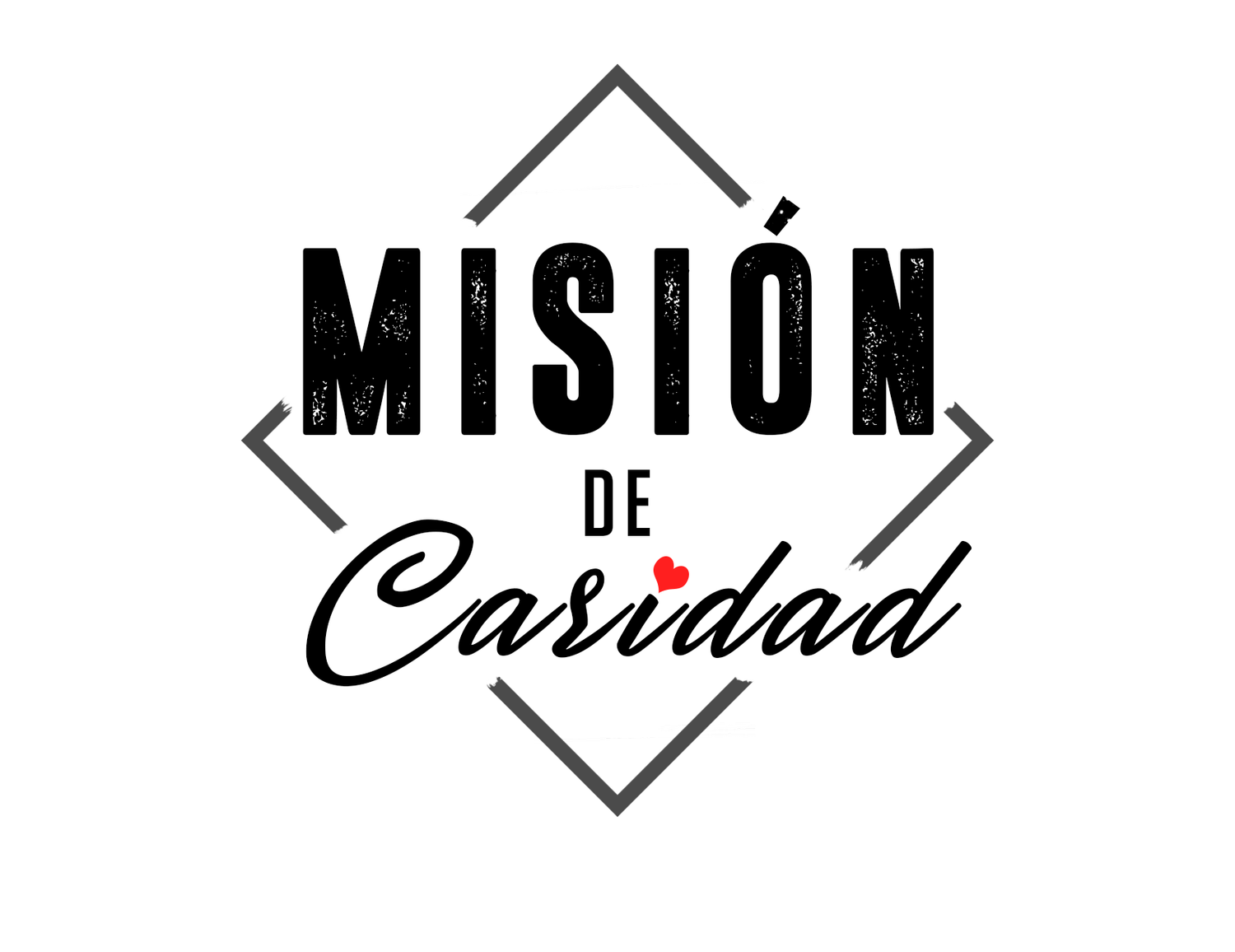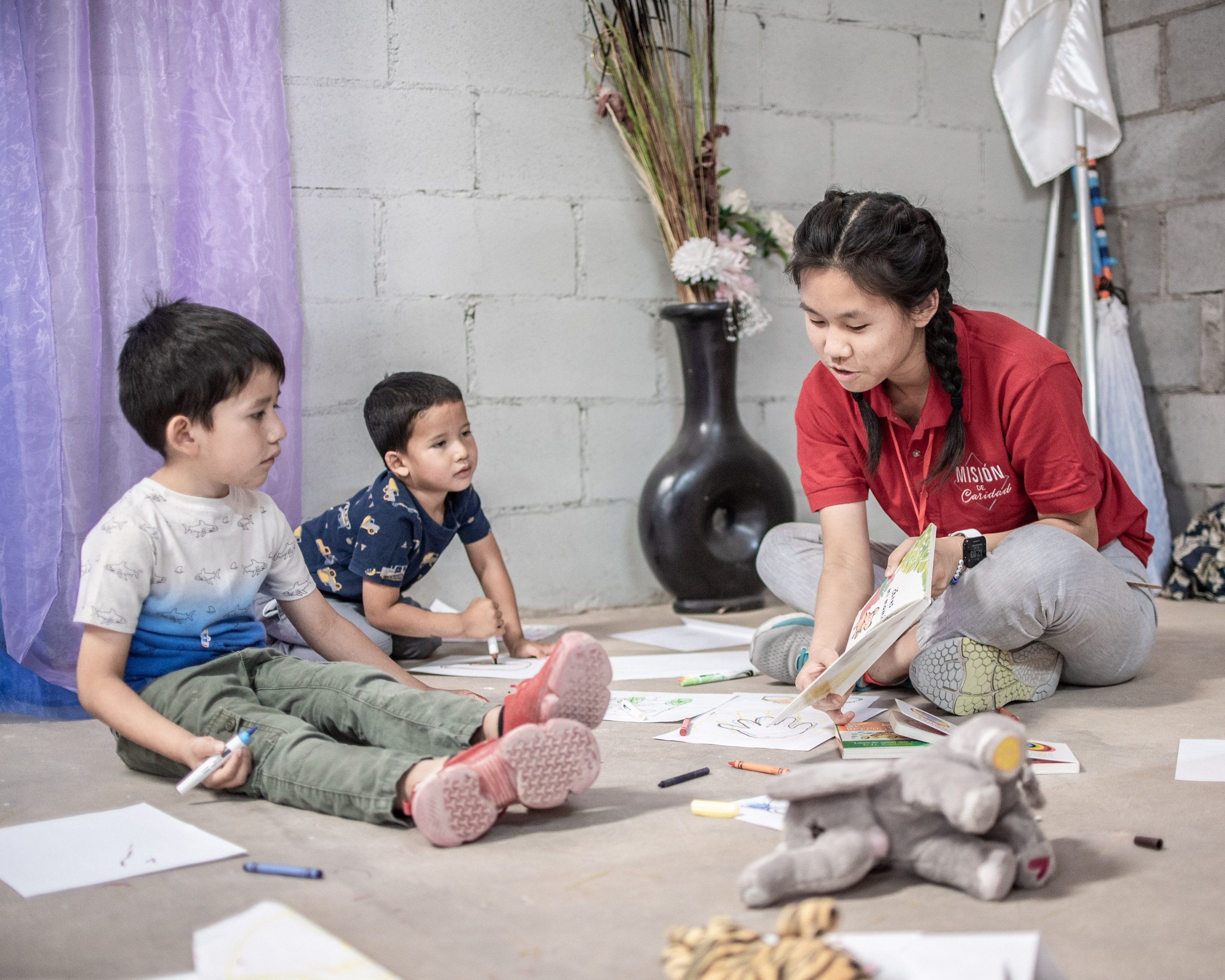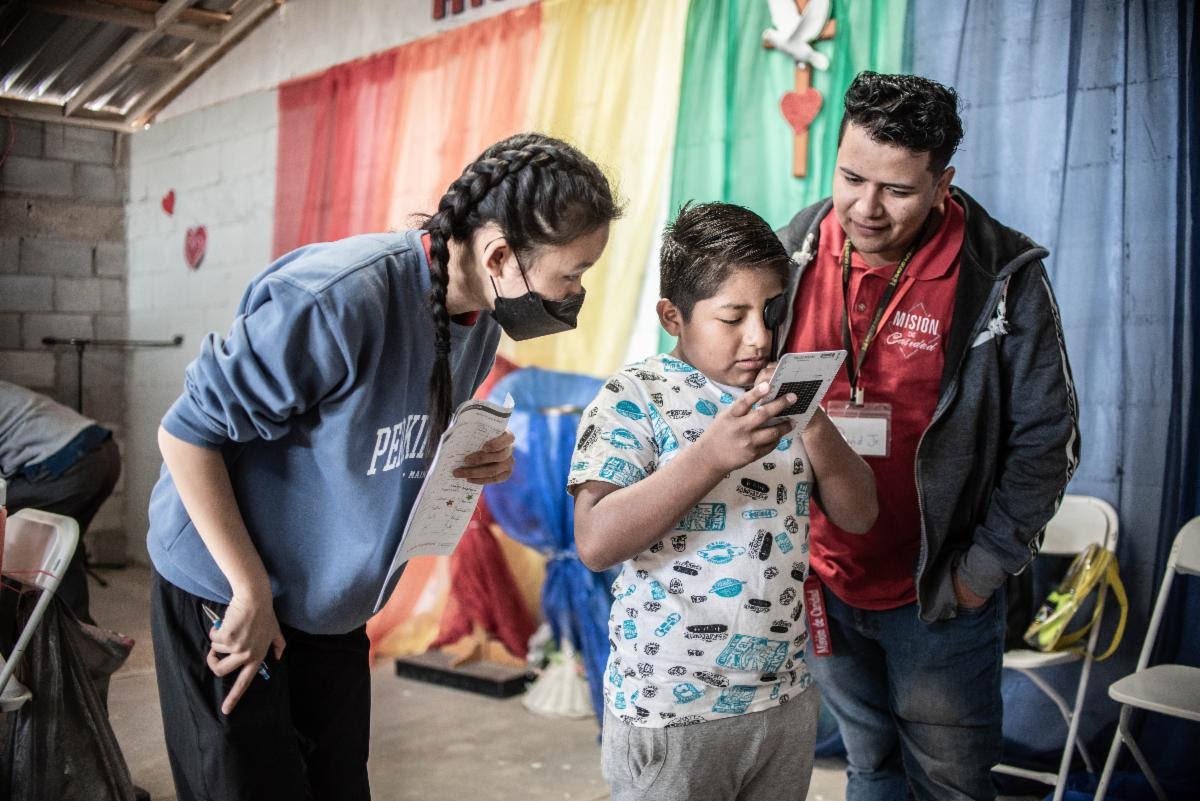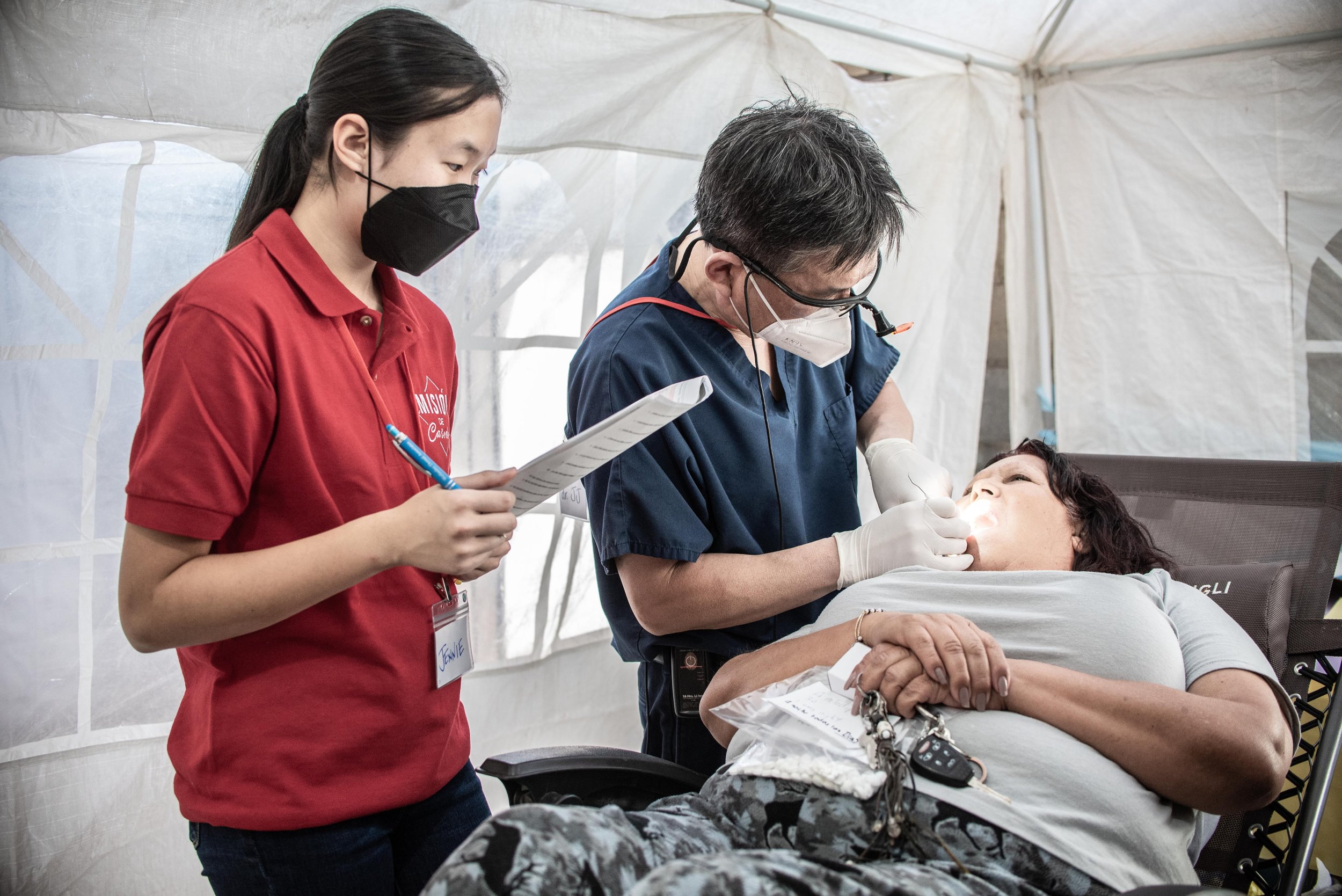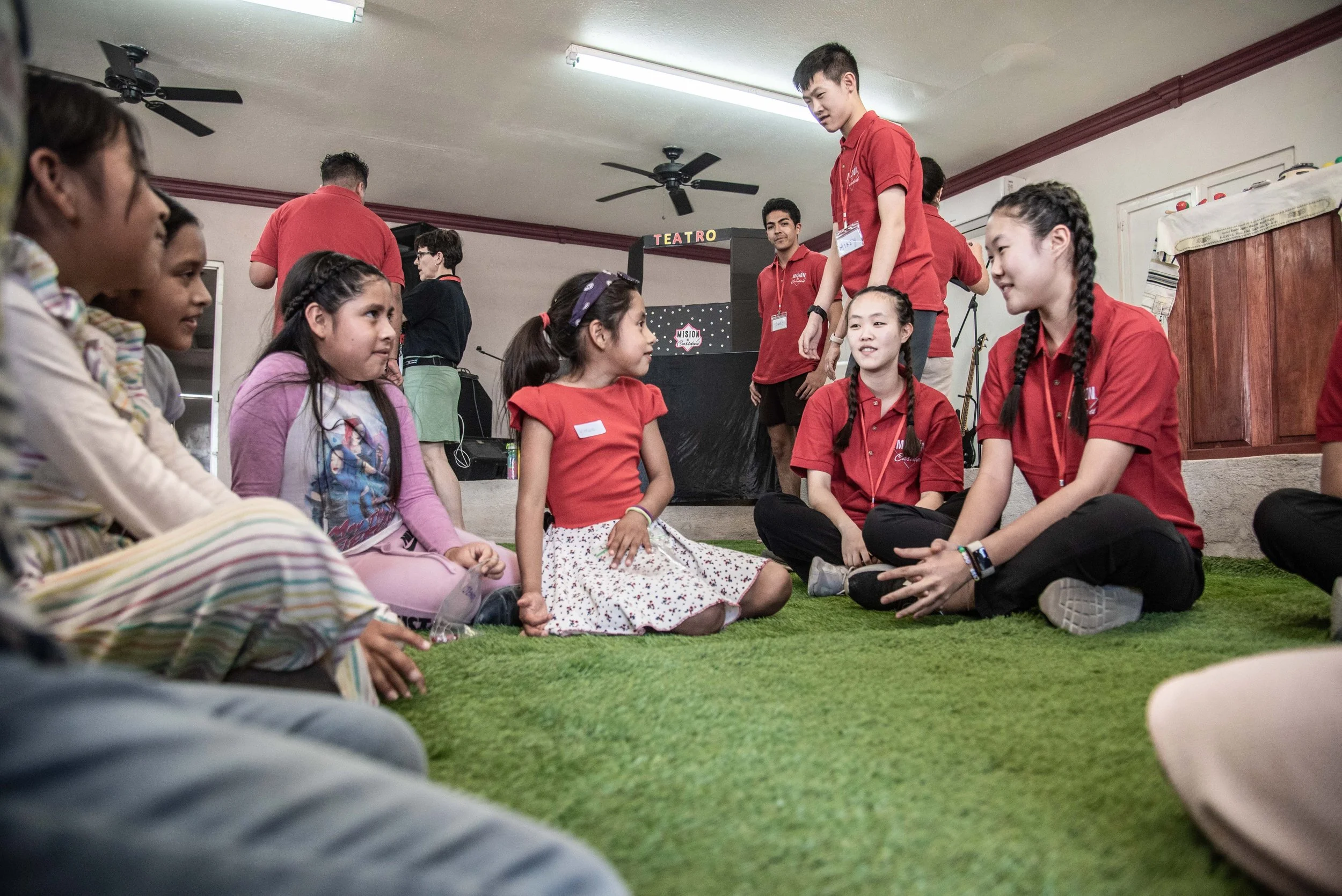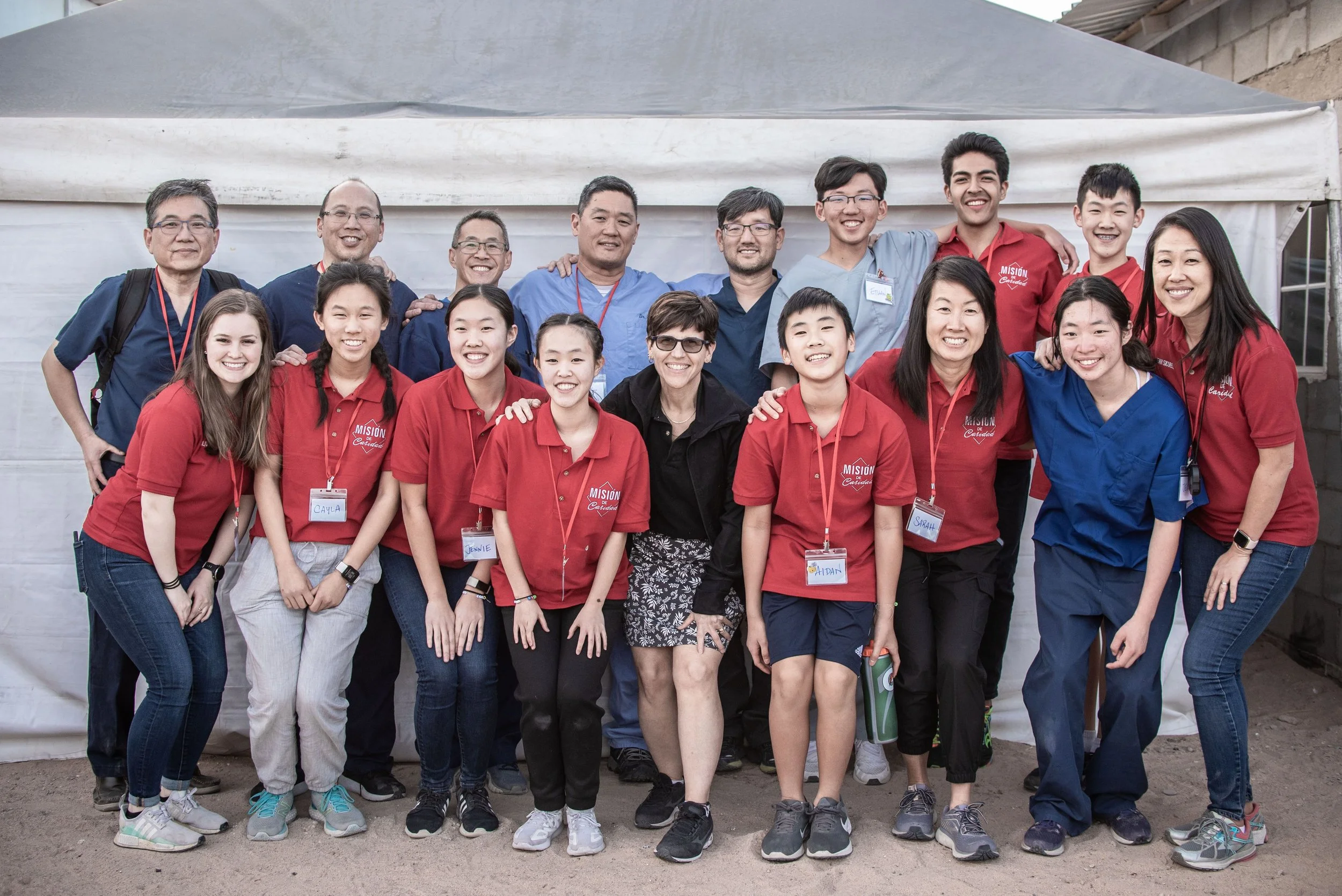From Boston to Besitos: 3 Teenagers Share their Stories from MdC's Medical Fair
From left to right: Cayla Kwok, Jennie Noh, Ethan Oh, Katie Noh, Aidan Kwok, Mikey Noh
This past medical fair saw the highest ever number of teen volunteers! Dr. Alan Kwok, Dr. Joe Lee and Nurse Andy Noh were accompanied by their kids. These highschoolers provided assistance and support throughout the medical fair.
We asked three of the teens that were part of the Boston team - Cayla Kwok, Katie Noh and Jennie Noh - to share about their experiences from the medical fair. Below are excerpts from their stories.
Cayla Kwok, (16)
When we first arrived in the community, the poverty and dire circumstances shocked me. I immediately recognized the gaping disparity from where I live compared to the circumstances these families live in. Most houses were pieced together with wood, brick, and whatever available materials they had access to. The heartbreaking circumstances opened my eyes to the work MdC is doing and how critical these medical fairs are.
Two little boys are captivated by Cayla’s reading
On the first day of the medical fair, I worked in the waiting area, a designated space for children to play while they waited for their families. My favorite part of the station was reading books to the children. It was a way to connect with them, despite the language barrier. I saw their smiles and laughter as we read about a dog searching for his mother and an elephant and pig arguing. Despite the circumstances they live in, these children are overflowing with joy and laughter. When reading a book about different animals, one kid shouted the name of the animals he knew, bouncing with excitement. He pointed enthusiastically to a yellow duck exclaiming, "Pato!".
Katie, Lucy, Aidan and Cayla teach the kids a fun new song with hand motions
Another girl gifted me a small pearl ring, cupping her small hands around it. Despite having very little, she was eager to share what she did have. I now keep this ring in my room and think about her generosity every time I see it. These moments were tremendously precious and meaningful to me. I was touched by the kindness I experienced from such young children. I also saw older children comforting and caring for their younger siblings and cousins, realizing how this community forces children to mature and take on responsibilities at a very young age.
Cayla and MdC staffer, David, help a patient read the eye chart
On the second day, I helped take patients' eyesight for the vision station. We used an eye chart and had patients read off the letters they could see. Many of the children and adults could not read the letters on the chart and we tested their vision by holding up our fingers instead. Elementary aged children unable to recognize letters illustrated the severe lack of education in the community. It was also saddening to see people severely struggling with the vision test and how their needs weren't addressed sooner. I acknowledged the privilege and importance of having access to doctors and medical help my entire life.
Dr. Alan Kwok with his daughter Cayla, wife Sarah, and son Aidan
Though I take Spanish in school, I was nervous about communicating and connecting with people. The translators on the Mexican team are the kindest people and I loved learning about them throughout the trip. I also found that despite the language barrier, I was still able to connect with people in the program. On one father's medical record, I saw his birthday is the same as mine, Cinco de Mayo, and pointed it out to him. I distinctly remember the warm smile he reciprocated, joking that he was older and was born many years before me. I have seen faces of children and families on Misión de Cariad's Instagram and social media but actually meeting these people was incredibly transformative to me. I had smiles and faces to connect to these broken houses and dire situations. Though I had heard many stories previously, actually meeting the people in this community was heartbreaking. When debriefing our trip, everyone, including all of the teenagers, expressed how much they enjoyed the trip and would love to return in the future. The impact this trip had on me extended far beyond the few days we served. I still think about the people I met and they challenge me to be appreciative of what I have and give back to the people around me.
Katie Noh, (18)
My time in Mexico was truly eye opening from start to finish. When I had signed up to go on this mission trip, I wasn’t exactly sure what to expect. I was told that “the people have nothing and they are far below the poverty line” but having grown up in a privileged area, I couldn’t quite fathom what that reality was truly like. However, when my team arrived I was shocked. I remember driving in the van as we passed the dry landscape of shacks and watched stray dogs wander the streets. At one point on our tour of the community we stopped to deliver some food staples and saw a small cube made of styrofoam, cardboard, and other materials that housed a family of 6. It was hard to believe that this cube was even a house at all. We had also visited another family with several kids, and while they didn’t have much, they were delighted to show us around their house. The kids had a sense of joy despite their circumstances, and I found that to be true of the other kids who arrived the next day for our summer program. They were cheerful, curious (many hadn’t seen Asian people before), and excited to teach me their names and favorite animals.
Nurse Andy updating his daughter, Katie on a patient’s information for their medical record
While I couldn’t always understand what they were saying, I quickly found that the little things made all the difference. I noticed how their faces lit up when we made bracelets with their names on it or when they got a small plastic mirror with a Bible verse on it. How grateful they would be when given ham sandwiches and watermelon. I also found that simple conversations in Spanish allowed me to build connections with many of the kids. I specifically remember talking to this girl who was a bit older and sitting by herself about school, different artists like Shakira and who her siblings were for nearly half an hour before she told me she hoped to see me again at the medical fair. It was almost as if we were friends planning to hang out. It felt so normal to a point where I couldn’t help but think, in another life, I could have been her and she could have been me.
Nurse Andy (middle) with Katie and Jennie on the left and Mikey and Jean on the right
For the next few days, I was a scribe for the medical team that was made up of two other high schoolers from my team, my dad (Nurse Andy Noh), and two community members. As the scribe, I recorded basic data such as weight, height, blood pressure and glucose levels. While my team and I had just met, we bonded over long work days, Spanish vocab games (where they corrected vocab words I had learned in classes that apparently aren’t really used in Mexico) and eating delicious fruity Mexican ice pops in plastic bags when it was slow at the Medical fair. Over the course of 2 days, we screened hundreds of people who came in through the fair, and while it felt good to put my Spanish into good use, and to educate people about basic ways to improve their health, I continued to think about the thousands of others who weren’t at the fair and who needed help. In only two days I saw how important this medical fair was for the community and especially for future generations. My visit may have been short, but I have so many memories and I hope to go back again soon!
Jennie Noh, (16)
Jennie plays with a child while mom, Jean, watches in the background
This past April break I went on my first mission trip to Mexico with Misión de Caridad. During this trip I was able to connect with people in a way I had never encountered before. The team and I saw poverty beyond our imagination and did our best to understand the situation that the people were living in. Most of all, I was able to see God actively working in every experience, interaction, and person.
Jennie is the medical scribe for Dr. Joe and documenting the details from his exam
One of my favorite parts of the trip was running a VBS-like program for the families. The first people I got to interact with were the children. I remember sitting on the stage as the kids were coming in and being absolutely terrified. I can speak a bit of Spanish thanks to my Spanish class at school, but I had never attempted a conversation with someone who did not speak English. A million thoughts of doubt came to my mind. I didn’t want to embarrass myself or put the kids in an awkward position if they couldn’t understand what I was saying. I could smile and wave, but actually speaking was so far out of my comfort zone that it felt impossible. At that moment, I felt something in me saying that I should try. In retrospect, I can see that God was working. He pushed me to start a conversation with a couple of kids. They were far from good, but they were meaningful. I met a 12-year-old girl named Emily who is the oldest of four children in her family, and easily one of the most responsible people I’ve ever met. Her love for her siblings and motherly instincts were amazing to see. God showed me that taking risks and putting others before my own comfort is what He was calling me to do.
Jennie and her sister Katie captivate the attention of young girls
During the medical fair, I worked as a scribe for both of the dentists at the dental station. This meant that I recorded information about the patient’s teeth such as cavities, fractures, or missing teeth, and the treatment they received. At first, I was not sure how helpful I would be because I knew nothing about dentistry, but the dentists were really patient. Working in dental was a really cool experience - I got to see the dentists stop cavities and extract teeth. I also learned a lot about the overall health of the people in that community. Almost every person had cavities as a result of their sugar intake and lack of education surrounding dental health. Seeing this made me take a step back and appreciate the things I take for granted in my life. I always dreaded going to the dentist instead of being thankful that I had the opportunity to get my teeth cleaned. I never thought about how not everyone learned how to brush their teeth for two minutes, twice a day, every day. Through this experience, God showed me to be grateful for everything that I have, even if it seems small. I know that we were able to help so many people, and I’m really glad that I got to be a part of this amazing experience.
Back row: Dr. Joe Lee, Dr. Alan Kwok, Nurse Any Noh, Dr. Joe Lee, Yong Shik Oh, Ethan Oh, Tomas Salazar, Aiden Noh
Front row: Olivia Upton, Cayla Kwok, Jennie Noh, Katie Noh, Jean Sicurella, Aidan Kwok, Sarah Kwok, Jacqueline Lee, Jean Noh
Thank you Team Boston!!
It is a blessing to serve as a family and grow and learn together in service to others.
